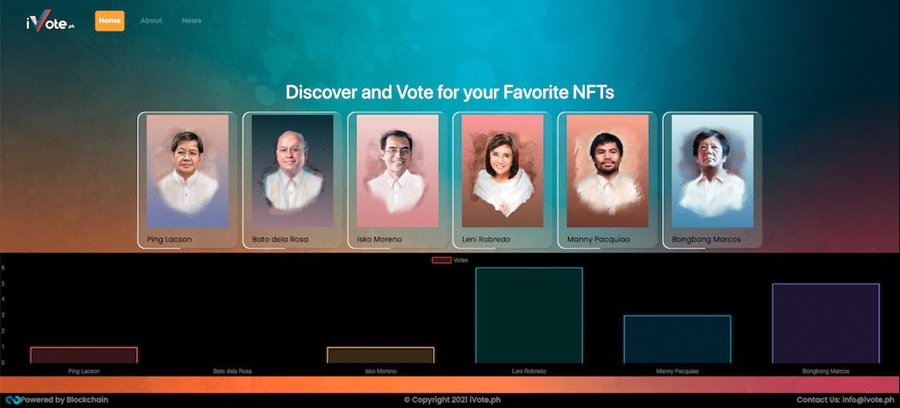Since many people are becoming more involved (if not entirely fired up) on social media concerning the upcoming May 2022 elections, here’s something that might surprise if not excite you regarding the matter – a 12-year-old student from the Philippines has developed a website that uses blockchain technology to allow people to check out the latest trends concerning the election polls starting next year.
From voting to real estate, blockchain projects are working on new ways to disrupt the world. And it is safe to say, this is for the better.
Gradeschool Student Creates System Built on Blockchain Technology To Monitor Public Interest On The Upcoming 2022 Election Candidates

Due to the importance of voting, many countries have already started using blockchain technology to conduct elections. These include the US, Russia, Thailand, and South Korea, as per a report by the Manila Bulletin.
If you’re wondering whether this is a possibility in the Philippines, and if so, when? Then you should know that as early as next year’s elections, there could be an added layer of protection and integrity in the upcoming national elections.
12-year-old Rien Lewis Pecson and Neil Fernandez, Jr. are both passionate about blockchain and NFT voting. They partnered to create iVote.ph, the first blockchain-based voting platform in the Philippines.
iVote was conceptualized to conduct a poll on the candidates featured in NFT Art by Neil. The poll will help the public gauge the public’s interest in the upcoming elections.
iVote.ph is a digital voting platform that enables citizens to cast their votes without having to provide their digital identity to third parties.
Non-fungible tokens are digital tokens that are not easily verifiable or interchangeable. They are hard to replace and are therefore very valuable.

The website will not be limited to political polls. Instead, it’s designed to be a voting platform for various industries and topics.
In essence, iVote.ph is a decentralized voting system that enables people to cast their votes for trending topics and events worldwide.
“I wanted to create something that will give people a better way to vote about things they care for, something unbiased and nonpartisan, where anyone can easily use it, without technical or blockchain knowledge. Even easy enough for my grandmother,” according to Pecson.
When one signs up for iVote.ph, they are given a unique and newly minted voting token. These tokens are then verified by the blockchain nodes and added to the growing blockchain.
By next year, Rien and Neil aim to launch a blockchain-based system that will allow users to verify their identity and vote confidently. Their goal is to create a system that will enable businesses and financial institutions to verify their customers’ transactions.
Due to the increasing popularity of blockchain technology and the expansion of society’s comfort levels with digital interactions, it is not surprising to see non-fungible tokens become a major part of society.
With the kind of impact that technology has in the future and our society, perhaps it’s worth noting what crucial skills will be in-demand for future work in the country and even overseas.